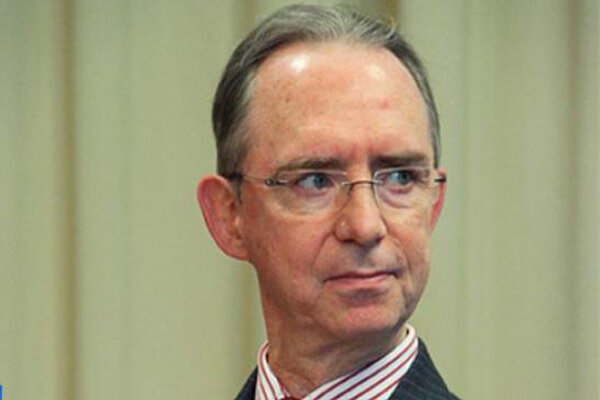
TEHRAN, (MNA) – Commenting on the fate of the JCPOA and lawfulness of Trump moves against Iran at UNSC head of arms proliferation at GCSP says, "whoever wins the US 2020 Presidential Election, JCPOA must be restored."
Due to the US position in the economic, political, security, and military spheres, the country has taken many unilateral steps in the international arena in recent decades, which has led to the formation of a trend in its foreign and economic policy.
Although this unilateral foreign and economic policy emerged with the post-World War II, ups and downs during the presidency of most US presidents, it seems to have become even more during Donald Trump's term.
Trump's unilateralist policies not only created tensions between the country and other world powers such as Russia and China but have even raised tensions between the United States and its European and NATO allies.
Now that the first term of Trump's presidency is coming to an end, many in the world are waiting for the results of the US presidential election.
To shed more light on President Trump's unilateralism and anti-Iran moves and the reasons behind them, we reached out to Marc Finaud head of arms proliferation at Geneva Center for Security Policy (GCSP).
Here is the full text of our interview with him:
How lawful do you assess the US move?
As this was confirmed by the UN Secretary-General and most other members of the UN Security Council, this decision cannot have any legal effects because the US withdrew from the JCPOA and has no legal ground to activate a mechanism provided for in that agreement.
After opposition from other UNSC members to the US unilateral action, the White House has imposed some other unilateral sanctions on Iran and has threatened other states to obey the US sanctions. Will the US be able to get what it wants with respect to Iran through bullying others?
Unfortunately, the US has been accompanying its unilateral sanctions with extra-territorial jurisdiction, meaning that it can impose secondary sanctions on states or entities that continue to trade with Iran. This is a powerful deterrent that has already discouraged major companies to trade with or invest in Iran, especially if they fear losing the American market. Even the EU mechanism to shield EU companies is not sufficient to give them assurances that they will not be affected by US secondary sanctions.
Why does Trump focus on Iran in the UNSC despite failures? Do you see any relation between his moves and the US 2020 Presidential Election?
Of course, appearing tough on Iran is popular among Trumps’ electoral base and is encouraged by anti-Iranian lobbies. And because this electorate is unmoved by facts, it does not realize that this policy is ineffective if not counter-productive.
How do you assess the US unilateralism’s effect on the efficiency of the UNSC?
This unilateralist policy has led to complete isolation of the US not only within the Security Council but globally. It contributed to further deterioration of the ability of the UNSC to fulfill its role in preserving international peace and security.
Some say the world orders and the UN structure does not meet the US interest anymore and some circles in the US believe in changes to the UN structures and are eager to show UNSC as an ineffective body that doesn’t meet the US needs. They believe focusing on Iran at the body prepares a good opportunity for some groups that have problems with the body to put pressure on the UN for reforms. What do you think of this?
Certainly, the UN as a whole, and the UNSC in particular, need reform for better performance, including enlargement. But exerting pressure on other members, including the US closest allies, is not the best way to achieve this goal. It is no secret that the Trump administration and its advisers are deeply opposed to multilateralism and any cooperative approach to security as demonstrated in the US withdrawal from major international agreements.
How do you see the future of the JCPOA and also the future of the transatlantic relation if Trump wins the election and if Biden wins?
Trump has said that, if re-elected, he would negotiate a new deal with Iran while Biden promised to reintegrate the JCPOA and re-establish dialogue with Tehran. Whoever wins, the JCPOA must be restored as the minimum common denominator on the basis of which further negotiations can take place. This means that the reciprocal nature of the JCPOA must be recognized and a win-win agreement can be the only basis for further relations.

No comments:
Post a Comment